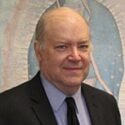Pro-abortionists use many simplistic and misleading slogans, including “Woman’s body, woman’s choice!,” “When men can get pregnant, they can have an opinion on abortion,” and “There must be strict separation of Church and State.” All of these are meant to intimidate pro-life people into not taking action to protect the unborn.
This is also the purpose of the “personally opposed” slogan, which abortion advocates have been using for nearly a century. In 1931, Dr. Magnus Hirschfield wrote in Margaret Sanger’s Birth Control Review, “On the basis of thirty-five years [of] experience, I am absolutely opposed to abortion. But I am also opposed to punishment for performing abortions, as in most cases only the poor and innocent come in conflict with the law, while the rich go scot free.”1
The slogan of “personal opposition” gives the misleading impression that one can morally support pro-choice measures by merely keeping one’s personal opinions and choices to oneself.
The “Personal Opposition” in Politics
Pro-abortion strategists promote this slogan because they know that politicians can use it to appeal to people on both “sides” of the issue. J. Giles Milhaven, a former member of the Catholics for [a Free] Choice (CFFC) Board of Directors, wrote:
Pollsters said that the safe position for one running for public office, even in districts where pro‑life was strong, was for the politician to express personal abhorrence of abortion in general while recognizing that under circumstances it might be morally and should be legally justified. No politician, said the pollsters, has lost a significant number of votes by taking that position.2
Pro-abortion politicians have learned this lesson well. Former New York Governor Mario Cuomo, a nominal Catholic, said that he was personally opposed to abortion, but didn’t want to impose his morality on other people. Of course, Cuomo was also opposed to capital punishment, but did all he possibly could to ban it in the State of New York.
A variant on the “personally opposed” slogan is that abortion should be “safe, legal and rare,” a phrase popularized by former President Bill Clinton, who did all he could to make sure there were as many abortions as possible, not only in the United States but all over the world.
By citing their personal opinion, politicians can settle themselves comfortably on the fence of one of the most critical issues in modern American Politics and still gain significant support from both sides.
“Personal Opposition” in the Catholic Church
Pro-abortion “Catholics” promote this kind of dishonesty within the Church as well, with the objective of sidelining as many pro-life Catholics as possible.
Another board member of CFFC, Dan Maguire, says:
Could a person who holds the most rigorous position on abortion in our society ― i.e., that it is always immoral ― support a policy that permits some abortion? As a Catholic ethicist I answer that question “Yes.”….Thus, a legislator who personally finds abortion always immoral may support the Roe v. Wade decision on abortion for these two reasons: (1) because the decision does not require anyone to have an abortion; it is a permissive, not a coercive, decision; and (2) because the abortion debate among Catholics, as well as among other Americans, is not settled.3
“Personal Opposition” in Society
Our society’s emphasis on toleration and non-judgmentalism has unfortunately given rise to a climate that inhibits logical thinking and contributes instead to a deadly kind of moral malaise, which always works to the advantage if the Culture of Death. The most common general expressions of this philosophy are “live and let live” and “don’t get involved.”
This problem is particularly prevalent in the area of the life issues, which include abortion, homosexual rights and euthanasia. Everyone wants to look “compassionate,” “fair” and “nuanced,” and when they use slippery pro-abortion slogans, it is very hard to reply to them. These slogans also allow people to identify themselves as “pro-life,” which is much more popular than “pro-abortion” or even “pro-choice.”
The “personally opposed” slogan also allows people to appear to be neutral on the issue, and permits them to remain uninvolved. Pro-lifers must convince people who use these slogans, but who “lean” pro-life, to take a stand if there is any possibility that they might become an activist for life.
As Dante says in his Inferno, “The hottest places in Hell are reserved for those who in times of great moral crises maintain their neutrality.”
An Inconsistent Position
It is a simple matter to demonstrate that the “personally opposed” slogan is not only dishonest, but irresponsible and inconsistent as well.
If anyone tells you that they are “personally opposed” to abortion, the best way to reply is to ask the simple and direct question “Why do you personally oppose abortion?” If they say that abortion should be “safe, legal and rare,” ask “Why do you want abortion to be rare?” This compels the person to actually think about what they are saying, and to focus on their reasons why they dislike abortion. We might also ask them what they have done to make abortion rare, because beliefs should be backed up by actions. If they reply that they promote contraception in some way, you have a wonderful opportunity to demonstrate with scientific evidence that contraception has led to more, not less, abortion.
The “personally opposed” slogan is dishonest precisely because it disconnects actions from attitudes. This, of course, is its primary purpose, because abortion advocates hope that people who are naturally pro-life will remain on the sidelines. It is only logical to expect that a person, when confronted with a choice about a moral issue, will follow his beliefs on that issue. Why should someone who is opposed to abortion vote for it or support it in some other manner?
If someone uses this slogan, ask him what other activities he “personally opposes” while simultaneously supporting, and you will quickly expose the illogic of this position.
Does he “personally oppose” racism while refusing to speak out about it? Does he “personally oppose” the beating up of homosexuals or illegal immigrants, yet says or does nothing about it? Does he “personally oppose” abuses of the environment, but decline to do anything concrete to stop it? Of course he is going to speak out against racism, “gay‑bashing” and climate change! If he “personally opposes” abortion, why does he not speak out against abortion?
Responsibility to Chose a Side
There is no “right” to commit evil. There is also no right to sit on the sidelines and ignore it.
We Americans condemned those Germans who lived in close proximity to concentration camps during World War II for doing nothing about them. As James 4:17 says, “Whoever knows what is right to do and fails to do it, for him it is sin.” In other words, if you are pro-life, you must take action to rescue the unborn. You do not need to take to the streets and picket abortion clinics; there are dozens of other “behind the scenes” activities that would benefit from your gifts, like education and volunteering at your local crisis pregnancy center.
It is not enough to say that you are “personally opposed.” It is not enough to say that you would never have an abortion yourself. If you want to call yourself “pro-life,” you have to act like it.
+ Endnotes
[1] Magnus Hirschfield, M.D. “My Views on Birth Control.” Birth Control Review, Volume XV, Number 11 (November 1931), pages 309 and 310.
[2] Giles Milhaven (former member of the ‘Catholics’ for [a Free] Choice Board of Directors). “Becoming Prolife While Staying Prochoice.” Conscience (newsletter of ‘Catholics’ for [a Free] Choice), September/October 1988 [Volume IX, Number 5], pages 15 to 18.
[3] Daniel C. Maguire (former member of the ‘Catholics’ for [a Free] Choice Board of Directors). “Catholic Options in the Abortion Debate: Probabilism in a Pluralistic Society.” Conscience (newsletter of ‘Catholics’ for [a Free] Choice), Summer 1996 [Volume XVII, Number 2], pages 19 to 23.
Related Content
Dr. Brian Clowes has been HLI’s director of research since 1995 and is one of the most accomplished and respected intellectuals in the international pro-life movement. Best known as author of the most exhaustive pro-life informational resource volume The Facts of Life, and for his Pro-Life Basic Training Course, Brian is the author of nine books and over 500 scholarly and popular articles, and has traveled to 70 countries on six continents as a pro-life speaker, educator and trainer.















